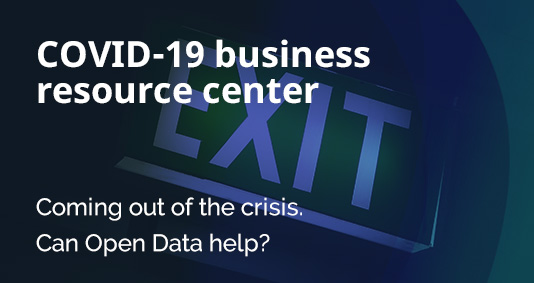
Open banking: Providing a lifeline for SMEs during the Coronavirus pandemic
A look at how UK SMEs can start to come out of the crisis, and how FinTechs can help.

A look at how UK SMEs can start to come out of the crisis, and how FinTechs can help.
While we are waiting for a vaccine or a cure for coronavirus people are struggling, the NHS is under pressure, the economy is basically closed for business and SMEs are collapsing due to a lack of liquidity.
There are various outcomes SMEs are experiencing at this time of crisis. However, what we anticipate, based on our experiences providing support to the sector across markets, is the following phased developments:
The economy stopped abruptly and a vast majority of companies, where possible, sent their employees home, trying to keep them and their businesses productive. An economic depression is unfolding and SMEs on average, depending on the industry, have liquidity available for 1 to 4 months to keep their businesses afloat.
(From now over the next three months). Various countries, via different economic strategies, are trying to prop up their SME sectors by either directly transferring money to these businesses or giving guarantees to lenders to transfer money to them. However, lenders will struggle in different ways since the number of contracts and money they have to issue is beyond what is manageable. In the UK for instance, there are roughly 6 million SMEs; if 80% of them seek liquidity that is 4.8 million new applications to be processed and hundreds of billions of pounds transferred before summer. In addition, and this is the most challenging part, banks are required to check that they are not funding companies that were already failing and are only providing funds to those SMEs whose difficulties originated with Covid-19. It is a daunting task, particularly considering the urgency. However, open banking can help in many ways. For example, open banking enables lenders to quickly and accurately check if an SME’s current account balance has been trending down from January. Also, open banking provides the ability to confirm whether an SME’s financial strength was robust before Covid-19 by checking the number of transactions and the credit scoring with pre-crisis data. Last but not least, following the allocation of financial support, as the business recovers, open banking enables accurate monitoring of the activity level and the vitality of the SME. In fact, any traditional scoring or rating will not be able to give a reliable output during this crisis due to its variables having been designed to check an SME’s performance through economic cycles, not shocks.
(From the next three months to 4 years). SMEs that come out of the crisis will try to rebuild their trading performance. Projections are anticipating that 10-20% of the SMEs will close during the crisis. The challenge for those businesses that survive and for lenders will be how to recognise the “good performers” from the rest? Once again open banking provides the solution by enabling lenders to check, in real time, the level of liquidity and the number of transactions of a company. The focus will be on the need for an indicator that will allow SMEs to prove their creditworthiness themselves, not in terms of credit quality but in terms of the ability to trade. In fact, the issue will be to verify the capacity to trade rather than the capacity to repay a debt.
It is clear that digital banking will provide critical data and tools to keep the financial world moving and SMEs accessing liquidity. The way lenders will be impacted by this crisis will be profound yet also positive. Open banking will allow transparency and the flow of information from lenders to businesses, in real time, replacing traditional ways of doing business with new ways based on the use of new data. This use of data will initially be to prove the existence of firms but, after these wartime economic conditions, it will be relied upon to deliver enhanced forecasts with improved prediction and accuracy. Perhaps there will be a silver lining to this terrible crisis as it will usher in a new, open data era of financial services that benefits SMEs and the economy.
Perhaps there will be a silver lining to this terrible crisis as it will usher in a new, open data era of financial services that benefits SMEs and the economy.